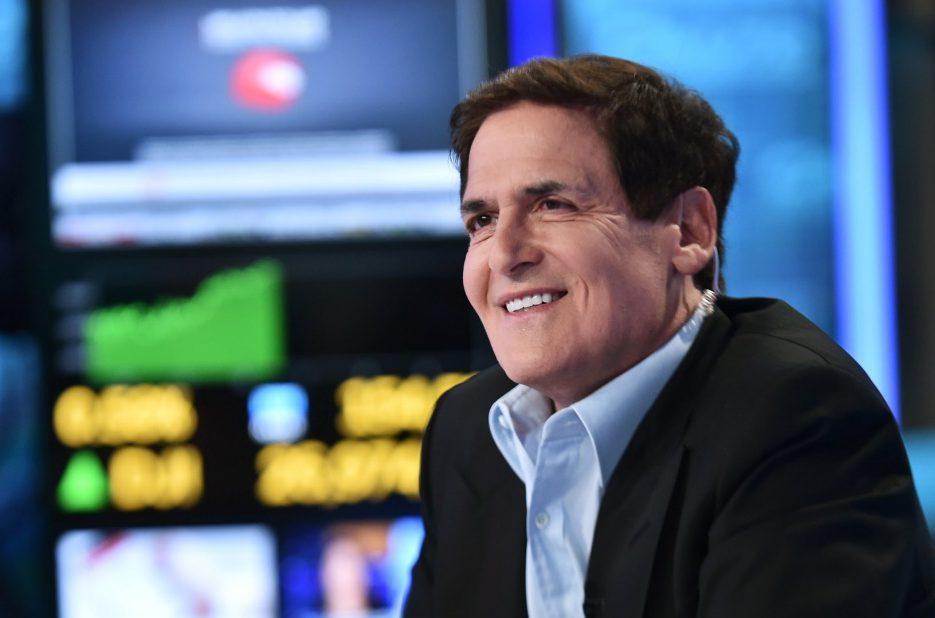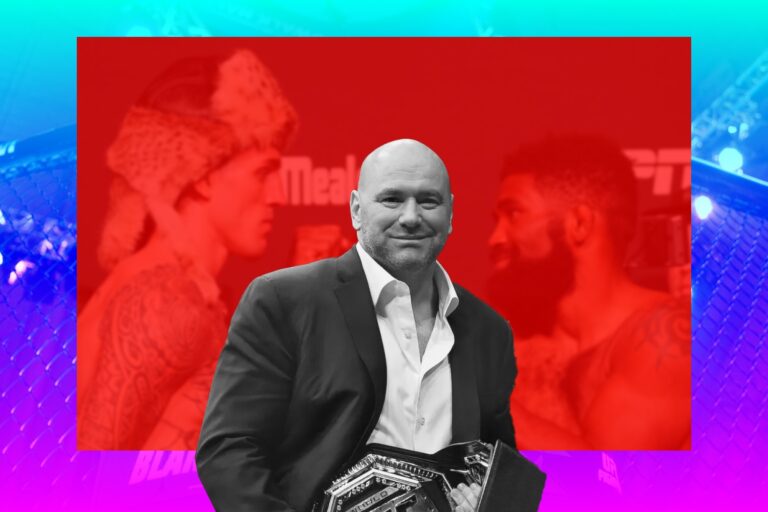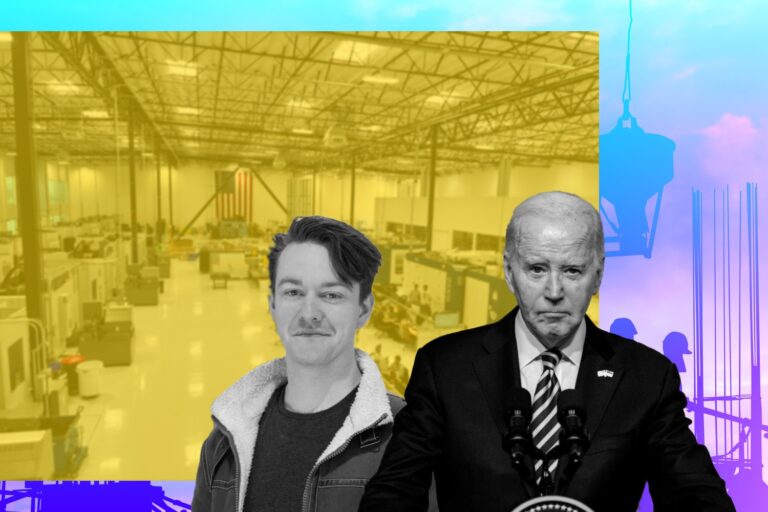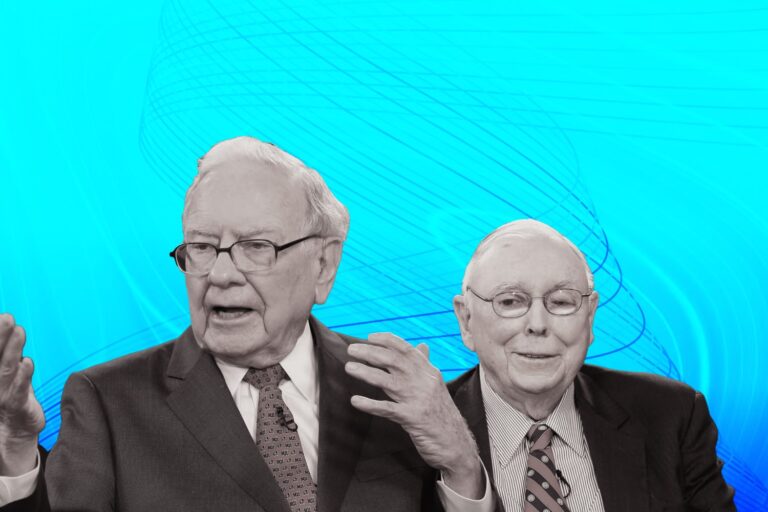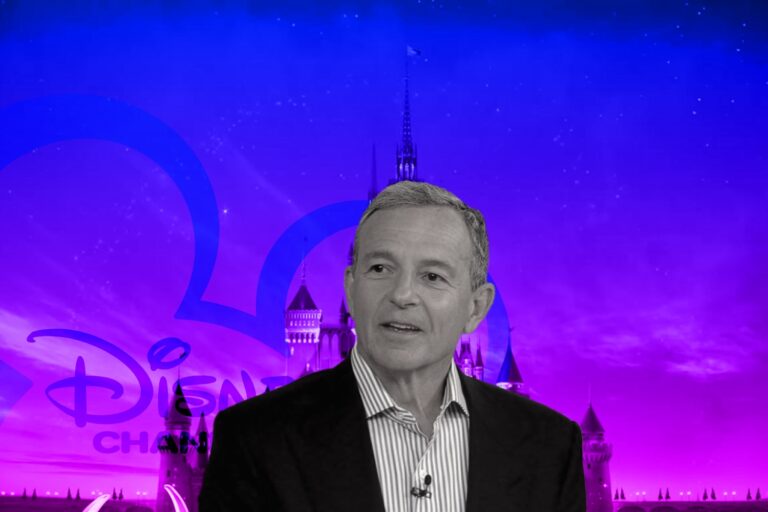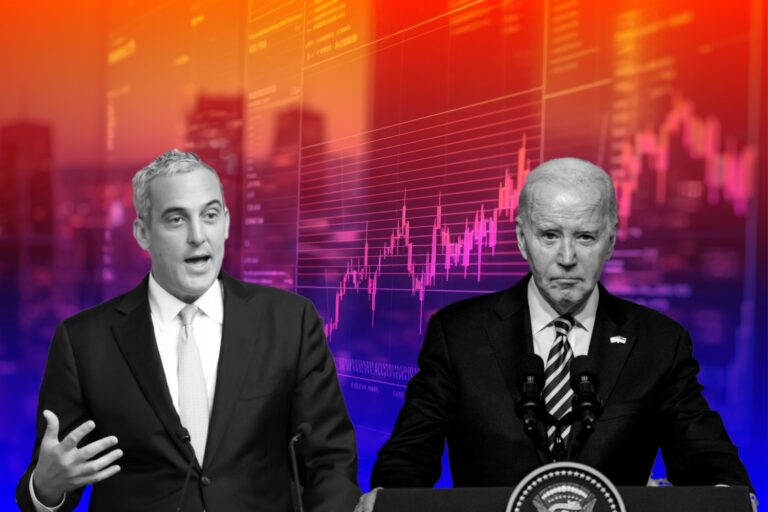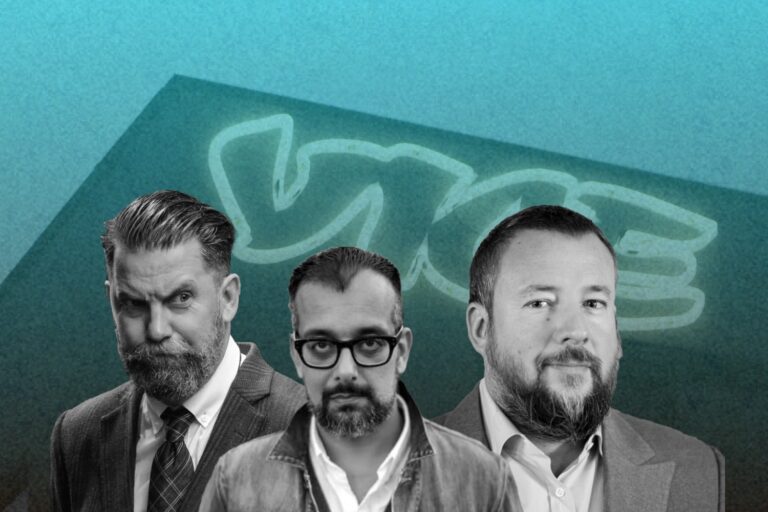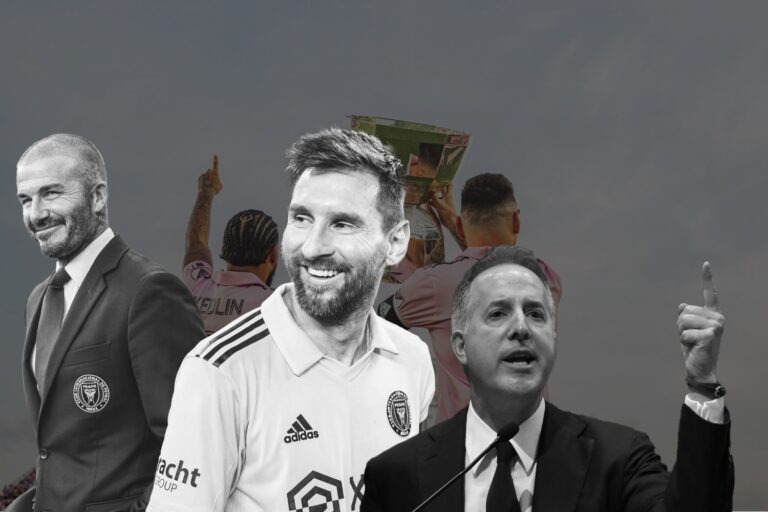Mark Cuban: “No Matter How Many Times You Failed, You Only Have to Be Right Once”
When you see the swaggering, sometimes arrogant Mark Cuban on Shark Tank, it’s easy to picture him as someone who grew up with money. In fact, Cuban was born in 1958 in Pittsburgh to a middle-class family with working-class roots.
From his modest beginnings, Cuban clawed his way forward, using his natural skills as a salesman to eventually amass his fortune. While the self-made billionaire carries himself like someone born with a silver spoon in his mouth, he actually earned the right to smugly shoot down other people’s dreams on the ABC’s show.
And, of course, Cuban now also has stake in countless start-ups from investments made on Shark Tank. He’s clearly aware that many people don’t know that he worked his way up from very little, based on the quote he shares at the top of his biography on his own website:
“It doesn’t matter how many times you failed. You only have to be right once, and then everyone can tell you that you are an overnight success.”
– Mark Cuban
What Mark Cuban Learned from His 5 Biggest Failures
In the 1990s, Cuban founded and sold several start-ups that helped him reach billionaire status. And in 2000, he paid $285 million for a majority stake in the Dallas Mavericks. Under his ownership, the team won an NBA championship in 2011 and is now valued at an estimated $2.3 billion.

It’s easy to imagine Mark Cuban behind a desk, on television or courtside at the Mavericks’ basketball game. It’s more difficult to imagine him fumbling a carpentry job, failing to pay his electrical bills or being on the receiving end of a firing.
But Cuban, like everyone else, started somewhere. And he was once laying down carpets instead of million dollars investments. Here are five of Cuban’s biggest failures and what we can learn from them:
#1. When He Couldn’t Learn A Fall-Back Trade
While growing up in Pittsburgh, Cuban’s parents encouraged him to learn a trade should he ever need a job to fall back on. Practical advice, except for one small problem. Cuban was pretty bad at most of the jobs he took on.
He worked as a carpenter laying down carpet, and quickly discovered he was terrible at it. As a short-order cook, he could only tell when food was ready by sampling it. And as a server, he struggled to open wine bottles without getting corks in diners’ Merlots.
Lesson learned: It’s okay not to be great at everything. “I’ve learned that it doesn’t matter how many times you failed,” Cuban says. “You only have to be right once.”
#2. When His Powdered Milk Gig Held No Water
Fresh out of business school at Indiana University, Cuban left his first job at a PC store because “they didn’t see a future in computers.” Set on starting his own business instead, Cuban’s very first venture was not destined to be the big break he’d hoped for.
The idea? Powdered milk. He saw an ad for the product and thought everyone needs milk. It’s cost effective and tastes about the same — why not go for it? As it turned out, his parents were among his only customers. “I honestly thought it would make a killer business,” Cuban recalls, “and it lasted minutes.”
The lesson? Don’t misjudge the market or the product. There’s a reason real milk reigns supreme and judging by your tastes alone isn’t enough to launch something sustainable.
#3. When Being Fired from A Software Job Hardened His Ambitions

After making a big move to Dallas, Cuban landed his first sales job at a company called Your Business Software. Knowing little about software, he taught himself on the job by reading all the manuals and went the extra mile to secure new customers.
But his initiative wasn’t enough to stop him from getting fired less than a year later. In fact, it was his initiative that would be his undoing. He closed a big deal with a client, and called out of his opening shift to do so against the CEO’s wishes. When he returned to the office with a $1,500 check, he was fired.
For Cuban, this incident made clear to him why he wanted to start his own business. It’s also why the CEO who fired him became his reverse-mentor. Says Cuban, “Even now I think back to things he did, and I do the opposite.”
#4. When an NBA Star Reached Huge Heights Without Him
Cuban did eventually get his big break when started MicroSolutions and later sold it for $6 million, the first of his many lucrative business transactions. By 2000, he was even able to buy a majority stake of the Dallas Mavericks.
As owner, the Mavericks went from a 40 percent win rate to a 69 percent win rate. But even then, Cuban was not immune to failure. His biggest mistake was failing to re-sign Steve Nash, who left the Mavs to join the Suns and win MVP awards in back-to-back seasons. It was a terrible flaw in judgement, according to Cuban. “We certainly didn’t see him as a two-time MVP. And it was the biggest mistake I made not re-signing him,” he told Fort Worth Star-Telegram. “We thought his body would break down and it certainly didn’t. So, bad advice, bad across the board.”
The lesson? Don’t take bad advice, hold onto your assets, and don’t underestimate what talented people can accomplish with or without you.
#5. When His First TV Show Flopped
Mark Cuban would go on to be the wealthiest shark on ABC’s Shark Tank as of 2012. But it was not his first reality TV rodeo, so to speak. The first, called The Benefactor, was a flop. The 2004 series involved 16 contestants vying for a $1 million prize, with Cuban judging their performances. Due to poor ratings, it was cancelled before the first season aired.
It’s just another example of the old “if at first you don’t succeed” adage, and for Cuban, it worked. Shark Tank is now the most-watched program on Friday nights for viewers aged 18-49.

Cuban was once asked what he thought was the one thing all successful entrepreneurs should experience. “Coming home and having the lights turned off because you couldn’t afford to pay the bills,” he answered. “It’s incredibly motivating and humbling.”
He’s also admitted to Entrepreneur to having his card cut up on one occasion. For Cuban, the lesson was simple. Use the shame and pain of such failures as a motivator to get back up and start winning.
His story goes to show that sometimes you have to lose 20 times or more before winning big, and what seems like luck is really just grit. Currently worth $4.3 billion, Cuban’s massive achievements came on the heels of many failures, all of which were valuable – even if painful – learning experiences.
“Now Is the Best Time to Ever Start A Business”
Recently, a rash of layoffs at startups has affected more than 30,000 people since the recession brought on by the coronavirus crisis nearly wiped out their employers’ businesses.
However, the good news for those individuals with an entrepreneurial bent, says Mark Cuban, is that now is an opportune moment to start their own company.
“It will be the best time in the history of mankind to ever start a business, because there are no rules,” said Cuban. This is somewhat synonymous with Baron Rothschild’s mantra:
“Buy when there’s blood in the streets.”
People are stuck at home, bored of their routines, Cuban figured. The enforced monotony creates an appetite for something new.
“If you’re able to come up with an idea, now’s the time to do it. Now’s the time not to hesitate, and particularly if you lost your job or you find yourself being furloughed. What better time? Everybody’s at home, and the minute when everybody walks out the door, everybody’s going to be looking for something new,” Cuban explained.
He predicts that the U.S. will look back on this turbulent time and realize that “25 or 50 world-class companies that were created specifically because the pandemic of 2020 happened, things that change the world.”

Mark Cuban believes that one man’s crisis is another man’s opportunity, even in the time of a global pandemic, where everything seems falling apart. “If there’s ever a benefit from a pandemic, it’s that there will be people who have a new vision for the future. I call it America 2.0”.
He called for building out manufacturing and infrastructure capabilities that are forward-looking, as the pace of technology continues to accelerate. Manufacturing for much-needed medical and pharmaceutical supplies — most of which are currently housed abroad — can be brought back, Cuban said.
“We can invest in robotics and technology that give us the opportunity to deal with the problems that are just in our lap right now — the fact that we’re not able to control our own destiny because we don’t manufacture core things that we need,” the investor said.
Next Gen of Founders Will Be Broke And ‘Not Afraid to Fail’
Mark Cuban believes the U.S. will “come out ahead of the game” after the coronavirus outbreak, largely because of the entrepreneurs who will build world-changing businesses during the extended lockdown. And he’s hoping uncertainty in the time of COVID-19 will create a new generation of successful founders.
He shared a motivational post on Twitter that has gone viral:

“I think it helps to tweet out thoughts that can be inspiring,” Cuban commented. “People are responding well to them. So, I keep on doing more.”
While Cuban certainly has a strong track record of self-driven financial success, he was often broke in his early 20s. He slept on the floor of an apartment that he shared with six others, frequently came home to his lights turned off and had his credit cards cut.
“When you’re first starting, you may or may not have a job. You don’t have any money. You have complete uncertainty about your career,” he shared. But “what I learned early on is that if I put in the effort, I can learn almost anything.”
He says there will be notable characteristics for those who do take that first step in this sobering time: “Not afraid to fail. Probably are broke and have nothing to lose and everyone thinks they are crazy.”
Cuban gets a first-hand look at plenty of founders in his role as an investor on the reality television series Shark Tank. He says in this period of uncertainty, a no-fear attitude is what drives founders to build great businesses.
If you’re looking to study up on future innovation, here are four industries Cuban is focusing on:
- Healthy buildings: Focus on how to make work environments healthier–not just energy efficient.
- Robotics: Cuban expects robotics to play an even larger role in businesses after the pandemic, specifically with assembly line manufacturing.
- Precision medicine: Cuban is interested in how doctors can tailor treatments to patients’ specific bodies and genetic dispositions. One thing we’ve learned from Covid-19, he noted, is that the virus impacts everyone differently.
- Artificial intelligence: Cuban advises founders, no matter how small their companies may be, to start learning how A.I. can be integrated into their business.
Start Today
According to Cuban, the best advice he’s ever received was hearing from his dad:
“Today is the youngest you will ever be. Live like it.”
It’s all a matter of perspective. You have never been older, but you will also never be younger!
Live like today is the youngest you’ll ever be by setting a goal, creating a process that supports it, tracking your progress, fixing what doesn’t work, and repeating what does.

“It’s hard to take a new risk,” Cuban said. “We all have the idea. We just don’t have the confidence to take that first step or we are too afraid of failure.”
Sure, it will be hard. Sure, it will be painful. But it will be a lot less painful than how it would someday feel when you look back on what could have been but isn’t. The pain of regret is always worse than the pain of discipline and effort.
Think about one thing you dreamed of doing five or 10 years ago but didn’t work to accomplish, and think about how good you’d be today at that one thing if you had. Think about all the time you wasted and can never get back.
Another day goes by, people let hesitation and uncertainty stop them from acting on their dreams. Whatever you hope to do, start it today, so that five or ten years from now you won’t look back with regret. Make sure you never have to say, “If I had only”.

